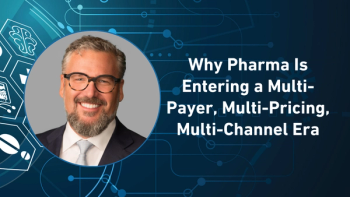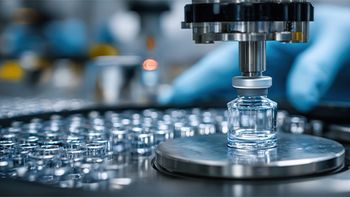
Whether 'precision' or 'personalized,' more new drugs need companion diagnostics
Personalized Medicine Coalition notes uptick in diagnostic-influenced drug approvals
Drawing on the list of “novel new drugs” approved by FDA in 2015, the Personalized Medicine Coalition (Washington) finds that 13 of the 45 NNDs, or 28%, meet its definition of a personalized medicine, i.e., one that has a label indication that a diagnostic test should or must be used in prescribing the drug. Many of these diagnostic tests go hand in hand with genetic biomarkers, but, as Daryl Pritchard, PhD, science policy SVP at the Coalition, notes, there can be diagnostic tests for small-molecule drugs as well. The 28% portion is up from 2014, when nine of 41 NNDs, or 21%, could be considered personalized.
Why is this distinction important? In practice, the diagnostic component is both a challenge and an opportunity to biopharma manufacturers introducing new drugs. FDA sometimes obligates the brand owner to specify a diagnostic test (and some manufacturers introduce their own diagnostic simultaneously with the drug launch). FDA has validated dozens of diagnostic tests (under its medical device protocols), but there are thousands of proposed or actual diagnostic tests in the research and testing community. Further, many “laboratory developed tests” (LDTs), originating at central labs, meet the criteria of coming from a CLIA-approved lab (CLIA being the federal standards for medical lab quality)—but that’s not the equivalent of an FDA certification. In the commercial realm, as many patients have found out, some diagnostic tests are reimbursed by insurers, sometimes, and some are not. Pritchard sees a need for progress in resolving the diagnostic-evaluation process; FDA is stepping up its oversight of the diagnostic arena and the tests themselves become more refined over time. “A resolution has to happen,” he says.
The Personalized Medicine Coalition draws on a large number of biopharma, diagnostics and insurance organizations, trade associations (including both PhRMA and BIO) and patient advocacy groups, among others.
In another context, the meaning of “personalized” is getting blurred from one faction of the medical research community, which prefers the term “precision” medicine (usually associated with biologic drugs and genetic biomarkers); meanwhile, there are healthcare providers using the “personalized medicine” term to refer to more personal attention for patients in their care—at which point the distinction of “personalized” medicine almost loses all meaning. “We consider ‘precision medicine’ to be a subset of personalized medicine,” notes Pritchard, “and the need for the diagnostic test is the defining characteristic.”
Newsletter
Stay ahead in the life sciences industry with Pharmaceutical Commerce, the latest news, trends, and strategies in drug distribution, commercialization, and market access.




